Home>diy>Building & Construction>How To Get A Commercial Construction Loan


Building & Construction
How To Get A Commercial Construction Loan
Modified: January 24, 2024
Looking to secure a commercial construction loan for building construction projects? Learn how to get the funding you need with our expert tips and advice.
(Many of the links in this article redirect to a specific reviewed product. Your purchase of these products through affiliate links helps to generate commission for Storables.com, at no extra cost. Learn more)
Introduction
Starting a commercial construction project can be an exciting endeavor. Whether you’re expanding your business, developing a new property, or constructing a retail space, it’s essential to have the necessary funds to bring your vision to life. This is where commercial construction loans come into play.
Commercial construction loans are specifically designed to finance the costs associated with the construction or renovation of commercial properties. These loans provide the necessary capital to cover expenses such as land acquisition, materials, labor, permits, and other construction-related expenses.
While obtaining a commercial construction loan may seem daunting, understanding the process and requirements can help you navigate through the application and approval process with confidence. In this article, we will delve into the key aspects of commercial construction loans and provide valuable insights on how to secure the funding you need.
Whether you’re a seasoned developer or a small business owner embarking on your first construction project, the information provided here will help you navigate the world of commercial construction loans successfully.
So, let’s dive in and explore the crucial steps to obtaining a commercial construction loan.
Key Takeaways:
- Securing a commercial construction loan requires thorough preparation, understanding loan terms, and effective cost management strategies to ensure a successful project outcome.
- Engaging with a qualified team, finding the right lender, and maintaining strong financial management are essential for navigating the commercial construction loan process and achieving project success.
Read more: What Is A Commercial Construction Loan
Understanding Commercial Construction Loans
Commercial construction loans are a type of financing specifically designed to fund the construction or renovation of commercial properties, such as office buildings, retail stores, warehouses, or industrial facilities. These loans provide the necessary funds to cover the costs of material, labor, permits, and other construction-related expenses.
Unlike traditional mortgages, commercial construction loans are typically short-term loans that are repaid upon completion of the construction project. The repayment terms and interest rates may vary depending on the lender, the borrower’s creditworthiness, and the specifics of the project.
Commercial construction loans can be a valuable tool for businesses and developers looking to expand or upgrade their commercial properties. Here are a few key features and benefits of commercial construction loans:
- Flexible Financing: Commercial construction loans offer flexibility in terms of the loan amount and repayment structure, tailored to the specific needs of the project. This allows developers to access the funds required to complete their construction project.
- Interest-only Payments: During the construction phase, borrowers may only be required to make interest payments on the loan. This can help alleviate some financial burden during the project’s progression.
- Accessibility: Commercial construction loans are available to a wide range of borrowers, including businesses, real estate investors, and developers, making it easier for them to secure the necessary financing for their construction projects.
- Property appreciation: The successful completion of a commercial construction project can significantly increase the property’s value. This can provide opportunities for refinancing or selling the property at a higher price, resulting in potential returns on investment.
It is important to note that commercial construction loans have specific requirements and may be more complex than traditional mortgages or other types of loans. Lenders will typically conduct a thorough evaluation of the project, including a review of the borrower’s financial history, project feasibility, and construction plans before approving the loan.
Now that we have a better understanding of commercial construction loans, let’s move on to the next step: preparing your loan application.
Preparing Your Loan Application
When it comes to obtaining a commercial construction loan, proper preparation is key. The loan application process can be intricate and time-consuming, and providing a comprehensive and well-organized application is essential to increase your chances of approval. Here are some steps to help you prepare your loan application:
1. Develop a Detailed Project Plan: Start by creating a detailed project plan that outlines the scope, timeline, and budget of your construction project. This should include architectural plans, construction drawings, and a breakdown of all the expenses involved.
2. Identify a Qualified Team: Assemble a team of professionals, including architects, engineers, and contractors, with a proven track record in commercial construction. Lenders will want to see that you have the right expertise to successfully complete the project.
3. Gather Financial Documentation: Lenders will require extensive financial documentation to assess your creditworthiness and the feasibility of the project. This may include personal and business tax returns, financial statements, bank statements, credit reports, and any other relevant financial records.
4. Prepare a Business Plan: A well-crafted business plan will demonstrate your understanding of the project and its potential profitability. Include an executive summary, market analysis, marketing strategies, and financial projections to showcase the viability of your project.
5. Calculate the Loan Amount: Determine the loan amount you need by considering all project-related costs, including land acquisition, construction materials, labor, permits, utilities, and contingency funds. Understanding the project’s total financing needs will help you request an appropriate loan amount.
6. Review and Organize Documents: Before submitting your loan application, meticulously review and organize all required documents. Ensure they are complete, accurate, and properly presented to showcase your project’s potential.
7. Consult with Professionals: Engage with a loan officer or financial advisor experienced in commercial construction loans to review your application and provide guidance. Their expertise can help you avoid potential pitfalls and improve your chances of securing a loan.
8. Be Prepared for Due Diligence: Lenders will conduct due diligence to assess the project’s feasibility, market potential, and your ability to repay the loan. Be prepared to provide additional information, answer inquiries, and address any concerns that may arise during the evaluation process.
By following these steps and being well-prepared, you will increase your chances of a successful loan application. Understanding the loan application process is crucial, but equally important is finding the right lender for your commercial construction loan.
The next section will focus on finding a lender that suits your needs and supports your construction project.
Finding a Lender
Now that you have prepared your loan application, the next step is to find a lender that specializes in commercial construction loans. Finding the right lender can greatly impact your loan terms, interest rates, and overall borrowing experience. Here are some key considerations when searching for a lender:
1. Research and Compare Lenders: Start by researching different lenders that offer commercial construction loans. Look for lenders with expertise in commercial real estate and construction financing. Compare their loan terms, interest rates, fees, and reputation within the industry.
2. Understand Lender Requirements: Each lender will have specific requirements and criteria for approving commercial construction loans. Make sure you understand these requirements and check if you meet the necessary qualifications before proceeding with the application.
3. Seek Recommendations: Reach out to other developers or industry professionals who have completed similar projects and ask for recommendations on reliable and trustworthy lenders. They can provide valuable insights based on their own experiences.
4. Attend Networking Events: Attend industry networking events, conferences, or workshops where you can connect with lenders and build relationships. These events provide an opportunity to learn more about lenders, their expertise, and the services they offer.
5. Consult with a Mortgage Broker: Consider working with a mortgage broker who specializes in commercial loans. Mortgage brokers have access to a wide network of lenders and can help match you with the most suitable options based on your specific needs and qualifications.
6. Online Research: Take advantage of the internet to research and compare different lenders. Visit their websites, read customer reviews, and check if they have any industry affiliations or accreditations that demonstrate their credibility.
7. Evaluate Customer Service: Lender responsiveness and customer service are crucial factors to consider. Ensure that the lenders you are considering are accessible and responsive to your inquiries. They should be willing to provide clear and timely communication throughout the loan application and approval process.
8. Request Loan Proposals: Once you have narrowed down your list of potential lenders, request loan proposals from each one. These proposals should outline the loan terms, interest rates, fees, and any other conditions specific to your project. Compare these proposals to determine which lender offers the best terms for your needs.
Remember, securing a commercial construction loan is not just about finding the lender with the lowest interest rate. It’s important to consider the lender’s expertise, responsiveness, and the overall value they can provide in terms of flexibility, personalized service, and understanding of your construction project.
Once you have found a suitable lender and received approval for your loan, you can move forward with the next steps in the loan process. The following section will discuss the qualification requirements for a commercial construction loan.
Qualifying for a Commercial Construction Loan
Qualifying for a commercial construction loan requires meeting specific criteria set by lenders. While the requirements may vary slightly from lender to lender, there are several key factors that lenders typically consider. By understanding these qualification criteria, you can better prepare yourself for the loan application process.
1. Creditworthiness: Lenders will assess your credit history, including your credit score and credit report, to determine your ability to repay the loan. A strong credit history demonstrates financial responsibility and increases your chances of qualifying for a loan with favorable terms.
2. Financial Stability: Lenders will review your financial standing to ensure you have the ability to repay the loan. This includes evaluating your business’s financial statements, cash flow projections, and any collateral you can offer to secure the loan.
3. Experience: Lenders typically prefer borrowers with a proven track record in commercial construction or real estate development. Demonstrating prior experience and successful completion of similar projects can increase your credibility and improve your chances of qualifying for a loan.
4. Project Feasibility: Lenders will evaluate the feasibility of your construction project. They will assess the market conditions, demand for the property, and the potential profitability of the project. Providing a detailed project plan, market analysis, and financial projections can help strengthen your case.
5. Loan-to-Value Ratio: Lenders consider the loan-to-value (LTV) ratio, which compares the loan amount to the appraised value of the property. Most lenders require a down payment or equity contribution, typically ranging from 10% to 30% of the total project cost, to reduce their risk.
6. Construction Plan: Your construction plan should be well thought out and comprehensive. It should include detailed architectural plans, construction timelines, and a breakdown of costs. Lenders will review this plan to ensure it is realistic and achievable.
7. Personal and Business Finances: Lenders may also evaluate your personal and business finances, including your debt-to-income ratio and cash reserves. They want to ensure that you have the financial capacity to handle any unexpected expenses that may arise during construction.
8. Legal and Regulatory Compliance: Lenders will require you to meet all necessary legal and regulatory requirements, such as obtaining the required permits and adhering to zoning and building codes. Failure to comply with these requirements can jeopardize your loan approval.
It’s important to note that these criteria are general guidelines, and each lender may have additional requirements specific to their lending policies. Consulting directly with the lender or a loan officer can provide further clarification on their specific qualification criteria.
By understanding the qualification requirements, you can better prepare yourself and address any potential concerns or gaps before submitting your loan application. Once you meet these requirements and have obtained approval for your commercial construction loan, you can move forward with the next steps in the loan process.
The following section will discuss loan amounts and terms that you can expect when securing a commercial construction loan.
Read more: How To Get A Construction Loan For A Home
Loan Amounts and Terms
When it comes to commercial construction loans, the loan amount and terms will vary depending on factors such as the project scope, financial stability, and lender requirements. Understanding how loan amounts and terms are determined can help you plan and budget effectively for your construction project.
Loan Amount: The loan amount for a commercial construction loan is typically based on the total project cost. This includes expenses such as land acquisition, construction materials, labor, permits, and other relevant construction-related costs. Most lenders finance a percentage of the total project cost, commonly ranging from 70% to 90%.
It’s important to note that lenders may have loan size limits or caps, meaning they may only offer loans up to a certain amount. Understanding the lender’s limitations beforehand can help you adjust your project plans and financing expectations accordingly.
Loan Terms: Commercial construction loan terms can vary depending on the lender and the specifics of your project. Here are some key terms to consider:
- Loan Duration: Commercial construction loans are typically short-term loans, with durations ranging from six months to three years. During this period, referred to as the construction phase, you will typically only make interest payments on the loan.
- Interest Rate: The interest rate on a commercial construction loan is generally higher than that of long-term commercial mortgages. The rate can be fixed or variable, and it is based on several factors, including the borrower’s creditworthiness, the project feasibility, and market conditions.
- Payment Structure: During the construction phase, borrowers are typically required to make interest-only payments on the loan. Once the construction is complete, the loan may transition into a permanent financing option, such as a commercial mortgage, with regular principal and interest payments over an extended period.
- Prepayment Penalties: Some lenders may impose penalties if you choose to pay off the loan before the agreed-upon term. These prepayment penalties are designed to compensate the lender for potential lost interest. It’s important to review such terms and negotiate them if possible.
It is crucial to carefully review and understand the loan terms offered by different lenders. Consider the impact of interest rates, payment structure, and any associated fees or penalties on your overall financing strategy. Consulting with a financial advisor or loan officer can help you navigate through the loan terms and select the most suitable option for your project.
Remember, while securing a commercial construction loan is an important milestone, it’s equally vital to ensure you have the necessary documentation in place to support your loan application. The next section will discuss the required documentation when applying for a commercial construction loan.
When applying for a commercial construction loan, be prepared to provide a detailed business plan, financial projections, and a strong credit history to increase your chances of approval.
Required Documentation
When applying for a commercial construction loan, you will need to provide a comprehensive set of documentation to support your loan application. Lenders require this documentation to assess your creditworthiness, evaluate the project feasibility, and ensure compliance with legal and regulatory requirements. Here are some of the essential documents you will likely need to prepare:
1. Personal and Business Financial Statements: Provide personal financial statements for all individuals with ownership in the project. Additionally, include financial statements for your business, including income statements, balance sheets, and cash flow statements.
2. Tax Returns: Submission of personal and business tax returns for the past few years is commonly required. This allows lenders to verify your income and financial stability.
3. Construction and Project Plans: Present detailed architectural plans and construction drawings for the project. These documents should include the scope of work, specifications, and floor plans.
4. Cost Estimate and Budget: Prepare a detailed cost estimate and budget for the construction project, including material costs, labor expenses, permits, fees, and any contingency funds. A comprehensive and well-organized budget will demonstrate your understanding of the project and ensure lenders have clarity on the project’s financial requirements.
5. Construction Timelines: Provide a construction timeline that outlines the anticipated start and completion dates for various phases of the project. This helps lenders assess the feasibility of the project and understand the timeline for repayment of the loan.
6. Proof of Ownership or Land Acquisition: If you already own the land or have entered into a purchase agreement, include documentation to verify ownership or the purchase agreement terms.
7. Contractor and Professional Team Information: Include details of the contractor and professionals involved in the project, such as architects, engineers, and project managers. This demonstrates that you have assembled a qualified team to execute the construction project.
8. permits and Approvals: Provide documentation regarding any necessary permits, approvals, or licenses required for the construction project. This demonstrates compliance with local building codes and regulations.
9. Legal and Insurance Documents: Include copies of relevant legal documents, such as articles of incorporation or partnership agreements. In addition, provide proof of insurance coverage for the construction project, including builder’s risk insurance and liability insurance.
10. Personal and Business Credit Reports: Obtain and include personal and business credit reports from reputable credit reporting agencies. This allows lenders to assess your creditworthiness and evaluate the risk associated with the loan.
Keep in mind that lenders may request additional documentation based on their specific requirements and evaluation process. It’s crucial to thoroughly review the documentation checklist provided by the lender and ensure that you have all the necessary documents prepared and organized before submitting your loan application.
Preparing and organizing these documents demonstrates your seriousness and preparedness to the lender. It also increases your chances of a smooth loan application process and ultimately achieving approval for your commercial construction loan.
Once you have submitted your loan application and provided all the required documentation, the lender will evaluate your application. In the next section, we will discuss the process of obtaining approval for your commercial construction loan.
Obtaining Approval for Your Loan
Obtaining approval for a commercial construction loan involves a comprehensive evaluation of your loan application by the lender. The approval process assesses your creditworthiness, project feasibility, and documentation provided. Here are the key steps involved in obtaining approval for your loan:
1. Initial Loan Review: Once you submit your loan application and required documentation, the lender will conduct an initial review to ensure all necessary documents are present and complete. They will assess your credit history, financial stability, project feasibility, and overall eligibility for a commercial construction loan.
2. Property Appraisal and Evaluation: The lender will conduct a property appraisal to determine the current and future value of the property upon completion of the construction project. This helps them assess the loan-to-value ratio and evaluate the risk associated with the loan.
3. Underwriting Process: After the initial review and property appraisal, the loan application will move to the underwriting stage. Underwriters will thoroughly evaluate your application, including verification of documentation, credit checks, financial analysis, and risk assessment.
4. Project Evaluation: The lender will assess the feasibility and profitability of your construction project. They will review the construction plans, cost estimates, timelines, and the qualifications of the contractors and professionals involved. This evaluation ensures that the project has a high likelihood of success and can generate sufficient cash flow to repay the loan.
5. Loan Approval or Denial: Based on the underwriting assessment and project evaluation, the lender will determine whether to approve or deny your loan application. If approved, you will receive a formal loan offer outlining the terms, conditions, and funding amount. If denied, the lender will provide reasons for the denial.
6. Negotiate and Accept the Loan Offer: Upon receiving a loan offer, carefully review the terms and conditions. If needed, negotiate certain aspects of the loan, such as interest rates, repayment options, or loan fees. Once you are satisfied with the terms, formally accept the loan offer.
7. Loan Closing: The loan closing process involves finalizing the loan agreement and executing all necessary legal documents. This includes signing the loan agreement, providing any additional required documentation, and paying closing costs and fees associated with the loan.
8. Disbursement of Funds: After the loan closing, the lender will disburse the agreed-upon funds according to an agreed-upon schedule, typically in stages, as the construction project progresses. Make sure to understand the disbursement process and adhere to any conditions set forth by the lender.
It’s important to note that the approval process may take time, and additional information or documentation may be requested by the lender during the process. Maintaining open communication with the lender and promptly providing any requested information will help expedite the approval process.
Once your loan is approved and the funds are disbursed, you can move forward with the construction project. However, it’s crucial to manage the construction costs effectively to ensure the successful completion of the project, as we will discuss in the next section.
Closing the Loan
After obtaining approval for your commercial construction loan, the next step is to proceed with the loan closing. The loan closing process involves the finalization of all necessary legal and financial documents to complete the loan transaction. Here’s a step-by-step guide to closing your loan:
1. Documentation Review: Before the loan closing, carefully review all loan documents provided by the lender. Ensure that the loan terms, interest rate, repayment schedule, and any other conditions align with your expectations and requirements.
2. Coordinate with Legal and Professional Advisors: It’s advisable to consult with your legal and financial advisors to review the loan documents and ensure that your interests are protected. They can provide valuable insights and guidance throughout the closing process.
3. Schedule the Closing: Coordinate with the lender, closing agent, and any other involved parties to schedule a date and time for the loan closing. This ensures that all relevant parties are available and prepared for the closing process.
4. Gather Required Documents: Prior to the closing, make sure to gather all the necessary documents that will be required to close the loan. These may include identification documents, proof of insurance, construction permits, and any additional documentation specified by the lender.
5. Closing Costs and Fees: Prepare to pay any closing costs and fees associated with the loan. These costs can include loan origination fees, appraisal fees, attorney fees, title fees, and any other expenses outlined in the loan agreement. Be sure to have the necessary funds available to cover these costs.
6. Loan Disbursement Agreement: During the closing, you will sign a loan disbursement agreement which outlines the terms and conditions for the release of funds according to the agreed-upon schedule. This agreement ensures that the funds are appropriately disbursed as needed throughout the construction project.
7. Sign Loan Documents: At the closing, you will be required to sign various loan documents, including the promissory note, mortgage or deed of trust, and any other relevant agreements specified by the lender. Take your time to carefully read and understand each document before signing.
8. Fund Disbursement: Once all documents are signed and the closing is complete, the lender will disburse the loan funds according to the agreed-upon disbursement schedule. These funds will be used to cover the construction costs as outlined in your loan agreement.
9. Keep Records: After the loan closing, retain copies of all loan documents and financial records related to the loan. These records will serve as important documentation for future reference and to ensure compliance with tax and legal requirements.
Remember, the loan closing process may vary depending on the lender and the specifics of your loan agreement. It’s important to closely review all documents and seek clarification if you have any questions or concerns.
Once the loan is closed and the funds are disbursed, you can focus on managing the construction costs effectively to ensure the successful completion of your commercial construction project, as we will discuss in the next section.
Read more: How To Get A Construction Loan For A Remodel
Repayment and Interest
Understanding the repayment terms and interest associated with your commercial construction loan is crucial for effectively managing your finances and ensuring timely loan repayment. Here are the key factors to consider regarding repayment and interest:
1. Repayment Schedule: Commercial construction loans typically have flexible repayment schedules. During the construction phase, you will generally be required to make interest-only payments on the loan. These interest payments help alleviate some of the financial burden during the construction period.
2. Transition to Permanent Financing: Once construction is completed, the loan may transition into a permanent financing option, such as a long-term commercial mortgage. At this point, regular principal and interest payments will begin, based on the agreed-upon terms and repayment schedule.
3. Interest Rate: The interest rate on a commercial construction loan can be fixed or variable and is typically higher than that of long-term mortgages. The rate is based on factors such as the lender’s assessment of risk, prevailing market conditions, and the borrower’s creditworthiness. It’s crucial to understand the terms of the interest rate, as it will impact the overall cost of the loan.
4. Loan Repayment Options: Commercial construction loans may offer different repayment options, such as adjustable rate mortgages (ARMs) or fixed-rate mortgages. Each option has its advantages and implications, so carefully consider which option aligns best with your financial goals and circumstances.
5. Prepayment Penalties: Some commercial construction loans may have prepayment penalties if you choose to pay off the loan before the agreed-upon term. These penalties are designed to compensate the lender for potential lost interest. Review the loan terms to understand if any prepayment penalties apply and factor them into your repayment strategy.
6. Loan Modification: In certain situations, such as unexpected changes in your financial situation or construction timelines, you may need to request a loan modification from the lender. This could involve adjusting the loan terms, repayment schedule, or interest rate. Consult with your lender to explore if this is a viable option for your circumstances.
7. Maintain Strong Financial Management: To ensure successful loan repayment, maintain strong financial management practices. This includes diligently tracking construction expenses, managing cash flow effectively, and avoiding any financial issues that could hinder your ability to meet loan obligations.
8. Seek Professional Financial Advice: If you have concerns about repayment or need assistance with financial planning, consider seeking professional advice from accountants, financial advisors, or loan officers. They can provide guidance on loan repayment strategies and help navigate any financial challenges that may arise during the construction and repayment process.
Keep in mind that every loan agreement is unique, and it’s essential to thoroughly review and understand the terms and conditions specific to your commercial construction loan. Developing a repayment plan and adhering to it will not only help you manage your finances effectively but also build a positive relationship with your lender.
Now that we’ve covered the aspects of repayment and interest, let’s move on to discussing effective strategies for managing construction costs in the next section.
Managing Construction Costs
Managing construction costs is a crucial aspect of any commercial construction project. Careful planning and prudent financial management can help you stay within budget, avoid cost overruns, and ensure the successful completion of your project. Here are some effective strategies for managing construction costs:
1. Detailed Cost Estimation: Begin by creating a detailed cost estimate that encompasses all aspects of the construction project. This includes materials, labor, permits, equipment, and any other necessary expenses. A thorough cost estimate serves as a baseline for budgeting and helps you identify potential areas where cost savings may be possible.
2. Establish a Contingency Fund: Set aside a contingency fund in your budget to cover unexpected expenses that may arise during construction. The general rule of thumb is to allocate around 10% to 15% of the total project cost as a contingency fund. Having this reserve will help mitigate the impact of unforeseen circumstances and keep your project on track.
3. Competitive Bidding Process: Obtain multiple bids from different contractors and suppliers to ensure competitive pricing. By comparing quotes and negotiating with vendors, you may be able to secure better prices for materials, labor, and services. However, be cautious not to compromise on quality in the pursuit of cost savings.
4. Value Engineering: Explore value engineering options to find cost-effective alternatives without compromising quality or functionality. This involves reevaluating design elements, materials, and construction techniques to optimize project costs while still meeting project requirements.
5. Efficient Project Management: Employ effective project management strategies to avoid delays, minimize rework, and enhance productivity. This includes setting clear milestones, establishing effective communication channels, and closely monitoring progress to identify and address issues promptly. Streamlining the construction process can help prevent unnecessary costs and keep the project on schedule.
6. Regular Cost Tracking and Monitoring: Implement a robust cost tracking system to monitor expenses throughout the construction project. Assign someone responsible for tracking, analyzing, and reporting on costs regularly. This allows you to identify any cost overruns or deviations from the budget early on, enabling you to take corrective action promptly.
7. Collaborate with Contractors and Suppliers: Maintain open communication with your contractors and suppliers to foster a collaborative relationship. Regular communication ensures that everyone is aligned with the project goals and budget. Engage in value-driven discussions to find cost-saving opportunities and explore potential alternatives.
8. Engage a Construction Consultant: Consider hiring a construction consultant or project manager with expertise in cost control and construction management. They can provide valuable insights, help identify potential cost-saving measures, and assist in effectively managing project finances.
Remember, effective cost management is an ongoing process throughout the construction project. Regularly evaluate and reassess your budget, make informed decisions, and adapt to any changes or challenges that may arise. By implementing these strategies, you can minimize construction costs, maximize efficiency, and achieve a successful and cost-effective commercial construction project.
With effective cost management in place, you are well on your way to completing your construction project within budget and achieving your business objectives. In the next section, we will conclude with a summary and some final thoughts.
Conclusion
Embarking on a commercial construction project is an exciting endeavor that requires careful planning, strategic decision-making, and effective financial management. Understanding the process of obtaining a commercial construction loan and implementing strategies to manage costs are crucial steps toward achieving a successful project outcome. Throughout this article, we have explored various aspects of commercial construction loans, from the initial preparation of the loan application to the loan closing and repayment process.
Securing a commercial construction loan starts with thorough preparation, including developing a detailed project plan, gathering the necessary financial documentation, and identifying a suitable lender with expertise in commercial construction financing. Taking the time to find the right lender and providing a well-prepared loan application increases your chances of approval.
Once approved for the loan, understanding the loan terms, including repayment schedules, interest rates, and any associated fees or penalties, is essential for effective financial management. Keeping a close eye on construction costs, establishing a contingency fund, and employing robust project management strategies are key to managing expenses and ensuring the project stays within budget.
Throughout the construction process, maintaining strong communication with contractors, implementing value engineering techniques, and engaging in regular cost tracking and monitoring will help you identify and address any potential issues promptly. These strategies will contribute to the successful completion of your commercial construction project.
In conclusion, obtaining a commercial construction loan and successfully managing the associated costs require careful planning, prudent decision-making, and ongoing financial management. By following the steps outlined in this article and leveraging the best practices highlighted, you can increase your chances of securing a loan, effectively manage costs, and achieve a successful outcome for your commercial construction project. Remember, it’s essential to consult with professionals, such as loan officers, financial advisors, and construction consultants, to navigate the loan application process and receive guidance tailored to your specific project needs.
Good luck with your commercial construction project, and may it be a resounding success!
Frequently Asked Questions about How To Get A Commercial Construction Loan
Was this page helpful?
At Storables.com, we guarantee accurate and reliable information. Our content, validated by Expert Board Contributors, is crafted following stringent Editorial Policies. We're committed to providing you with well-researched, expert-backed insights for all your informational needs.


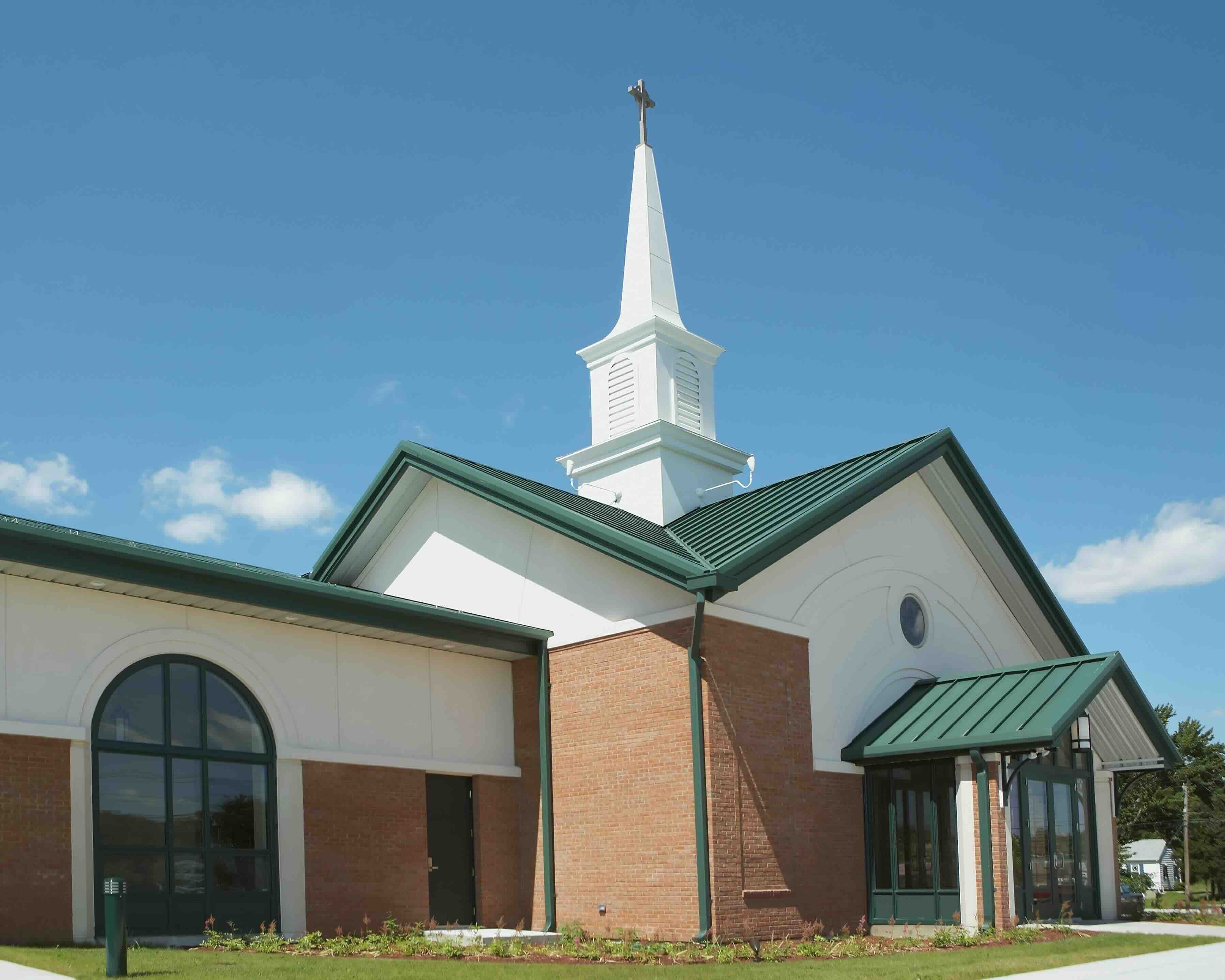

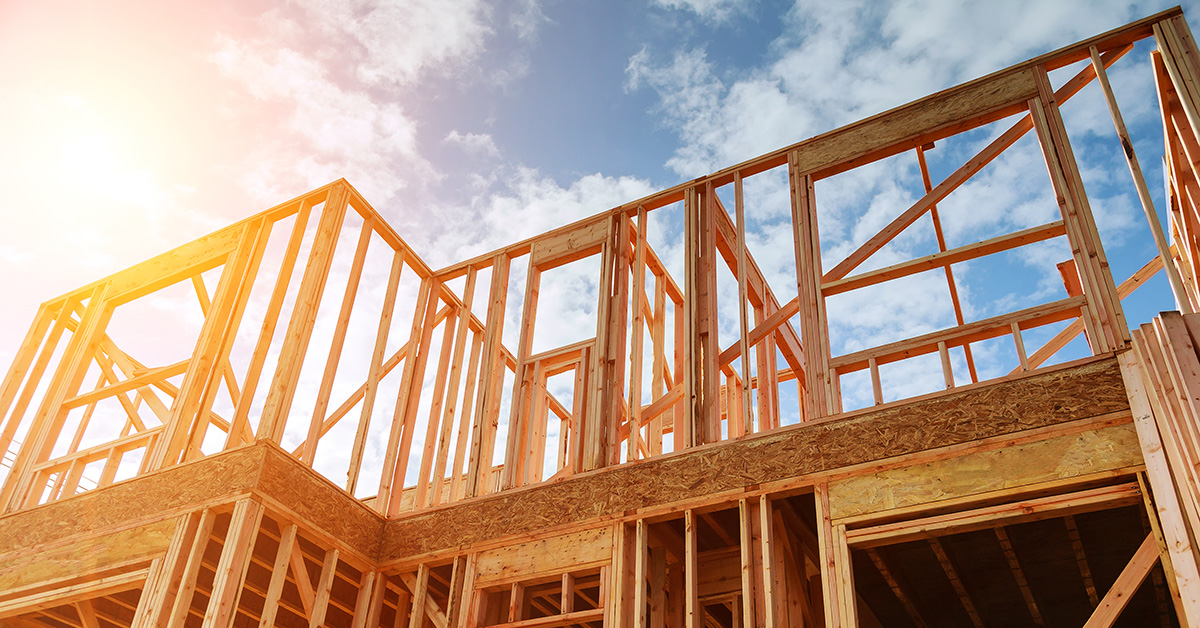





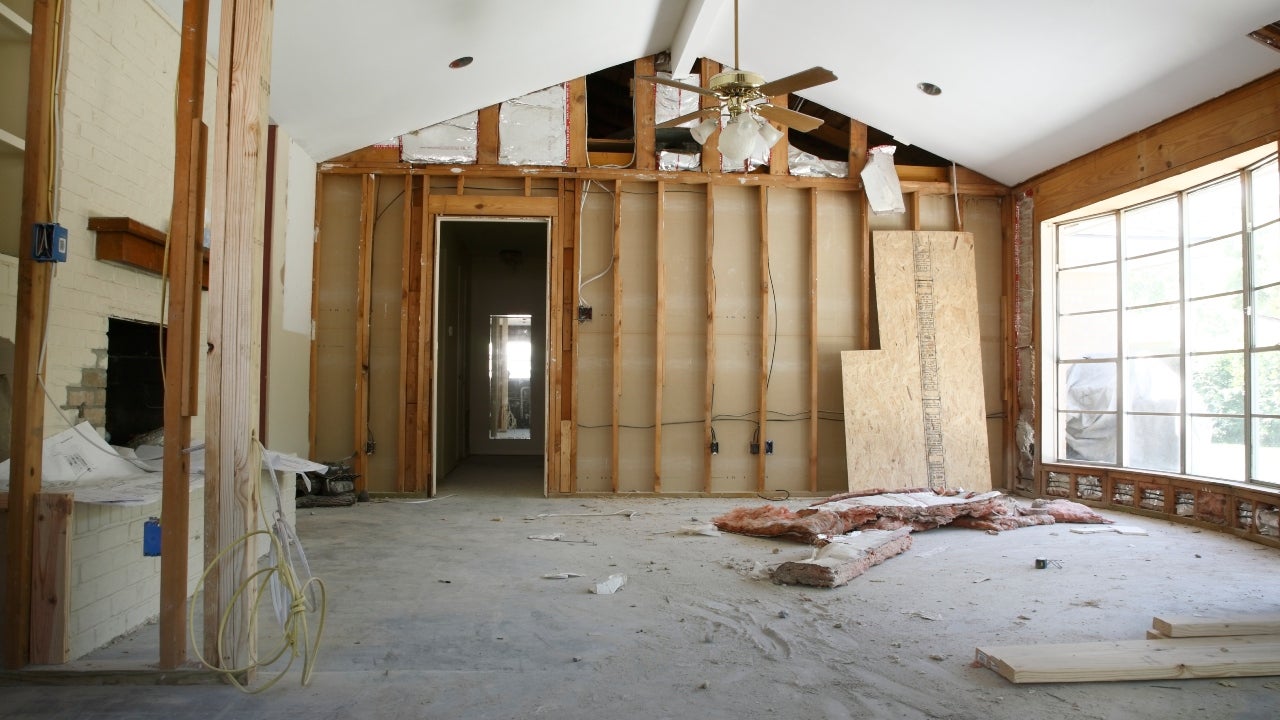
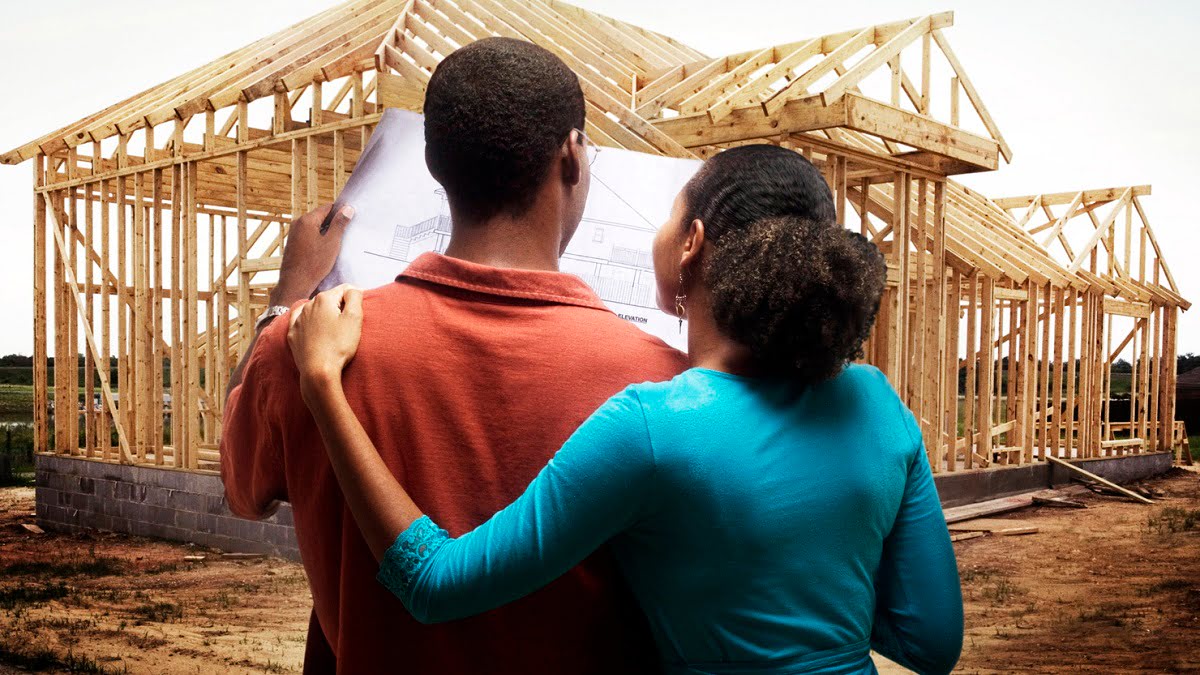
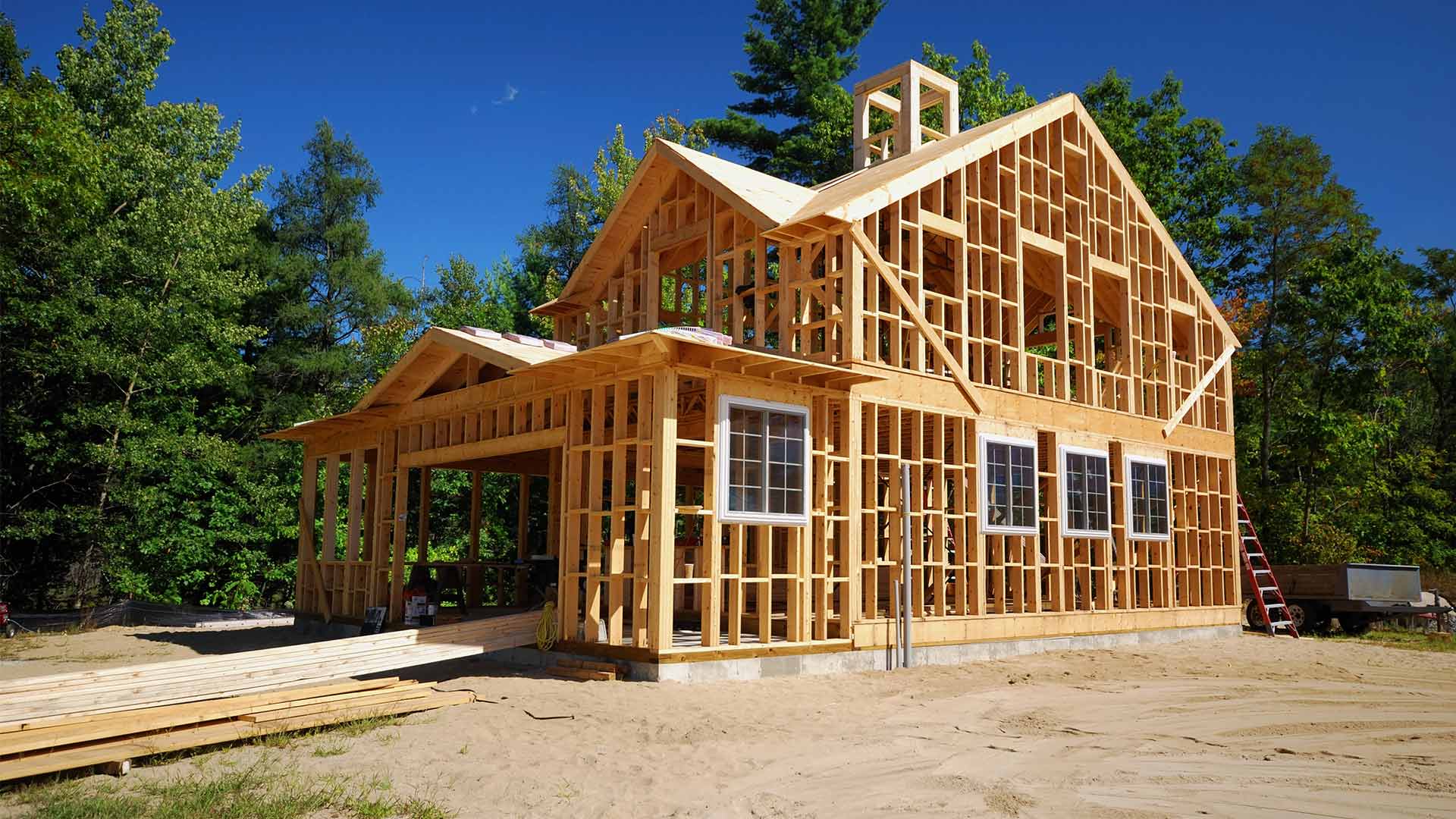

0 thoughts on “How To Get A Commercial Construction Loan”